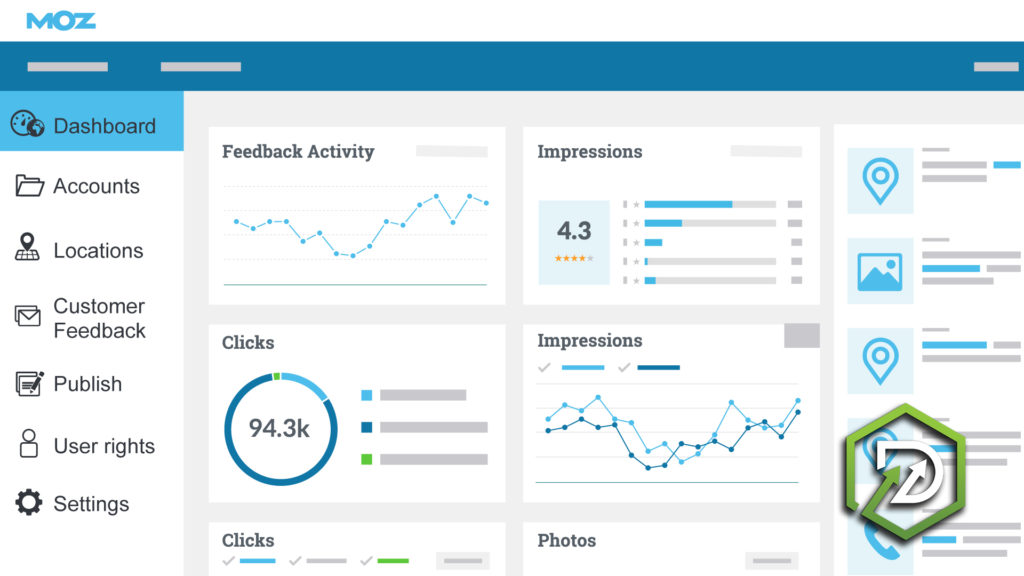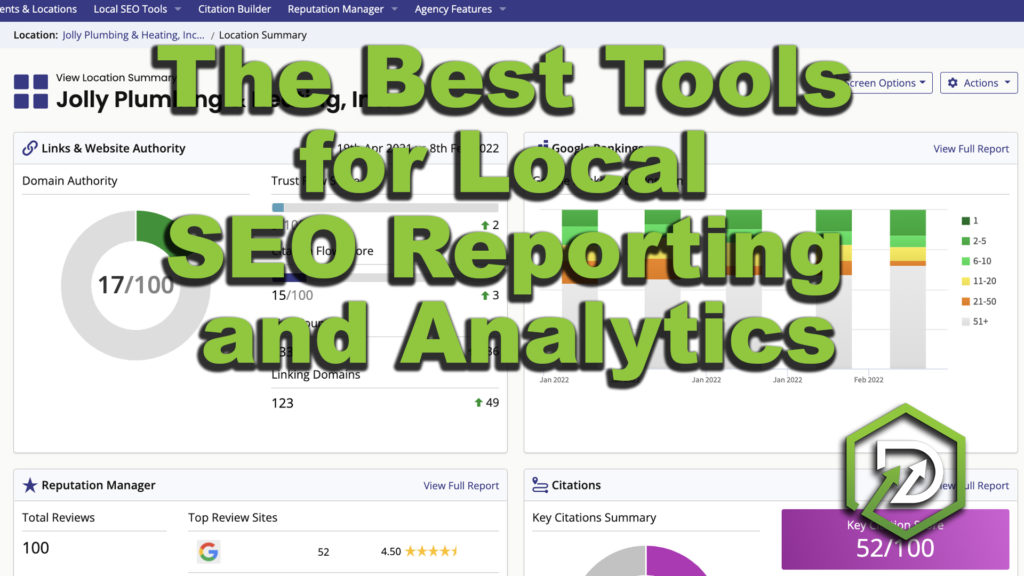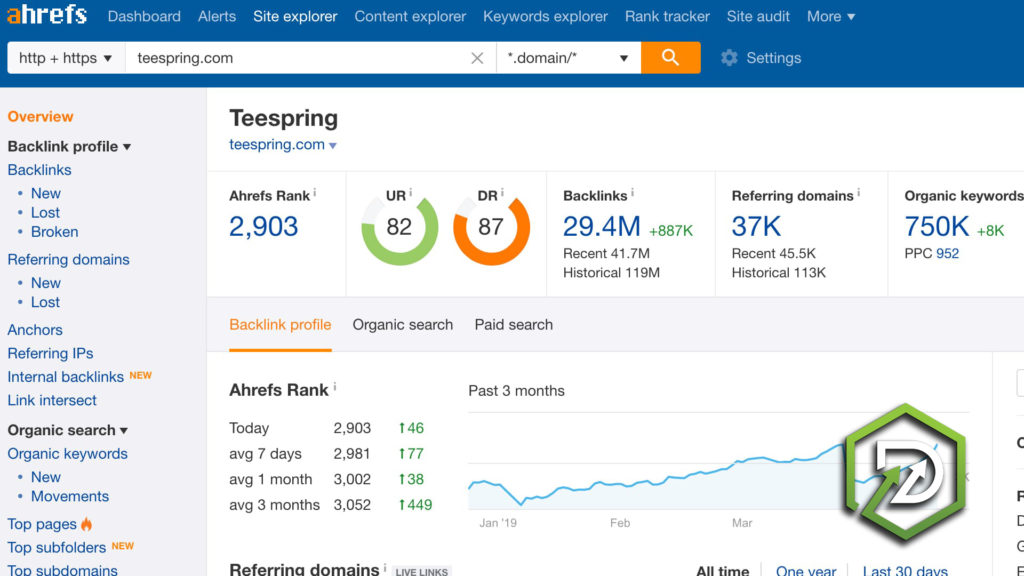LOCAL SEO
The Best Tools for Local SEO Reporting and Analytics: A Comprehensive Guide
Search engine optimization (SEO) is a critical component of any digital marketing strategy; local SEO is no exception. It is essential to have a strong local presence in search results if you want to attract and retain local customers. Local SEO involves optimizing your website and online profiles to rank higher in local search results. It involves several factors, such as your website content, links, citations, reviews, and social media presence.
You need the right tools and techniques to monitor and analyze your local SEO performance. In this write 1500-word post on The Best Tools for Local SEO Reporting and Analytics, we will cover the top tools and techniques that will help you track your progress, measure your success, and improve your local SEO strategies.
Google My Business
Google My Business (GMB) is a free tool provided by Google that allows businesses to manage their online presence across Google, including search and maps. It is a crucial tool for local SEO, as it helps businesses to appear in local search results, including the Local Pack and Maps.
With GMB, you can manage your business information, such as your name, address, phone number, hours of operation, and website. You can post updates, photos, and videos and respond to reviews. GMB also provides insights into your business’s visibility and engagement, such as the number of views, clicks, calls, and directions.
Local SEO Tools
Several local SEO tools can help you monitor and improve your SEO strategies. Here are some of the best tools:
1. BrightLocal
BrightLocal is a comprehensive local SEO tool that provides a range of features, such as local search rank tracking, citation tracking, review monitoring, and Google My Business insights. It also offers local SEO audits and reporting, which can help you identify areas for improvement and track your progress over time.
2. Moz Local
Moz Local is another popular local SEO tool that helps businesses manage their online listings and citations. It provides a dashboard to monitor your local search performance, fix incorrect listings, and optimize your profiles for better visibility. It also offers review monitoring and management features.
3. Yext
Yext is a local SEO tool that manages online listings and citations. It provides a centralized platform to update your business information across hundreds of directories, search engines, and social media sites. It also offers review monitoring, management features, and insights into your online reputation.
4. Whitespark
Whitespark is a local SEO tool that provides a range of features, such as local search rank tracking, citation building, and review management. It also offers a local citation finder, which can help you discover new citation opportunities and improve your local search visibility.

Analytics Tools
Analytics tools are essential for tracking your website’s performance, measuring your SEO success, and identifying areas for improvement. Here are some of the best analytics tools for local SEO:
1. Google Analytics
Google Analytics is a free tool provided by Google that helps businesses track their website traffic and user behavior. It provides valuable insights into your website’s performance, such as the number of visitors, page views, bounce rates, and conversion rates. It also offers audience insights, such as demographics and interests, to help you target your audience.
2. Google Search Console
Google Search Console is another free tool provided by Google that helps businesses monitor and improve their website’s presence in Google search results. It provides insights into your website’s indexing status, search queries, click-through rates, and backlinks. It also alerts you to any technical issues affecting your website’s performance in search results.
3. SEMrush
SEMrush is a comprehensive SEO tool that provides a range of features, including website analytics, keyword research, rank tracking, and backlink analysis. It also offers competitive analysis, which can help you identify your competitors’ strengths and weaknesses and improve your SEO strategies accordingly.
4. Ahrefs
Ahrefs is another powerful SEO tool that provides a range of features, such as backlink analysis, content analysis, keyword research, and rank tracking. It also offers site audit and competitive analysis features, which can help you identify technical issues and analyze your competitors’ strategies.
Local SEO Techniques
In addition to the tools mentioned above, businesses can use several local SEO techniques to improve their local search visibility. Here are some of the best techniques:
1. Optimize your website for local keywords
Optimizing your website for local keywords is essential for local SEO. You should include your city or region in your website’s title tags, meta descriptions, headers, and content. You should also create location-specific pages for your physical locations and optimize them for local keywords.
2. Build local citations
Local citations mention your business’s name, address, and phone number (NAP) on other websites, such as directories, review sites, and social media platforms. Building local citations can help improve your local search visibility and reputation. You should ensure that your NAP is consistent across all citations and that you have a presence on relevant local directories.
3. Get more online reviews
Online reviews are critical for local SEO, as they provide social proof and can influence local search rankings. You should encourage your customers to leave reviews on Google, Yelp, and other review sites. You should also respond to all positive or negative reviews to show that you value your customers’ feedback.
4. Use schema markup
Schema markup is a type of structured data that helps search engines understand the content and context of your website. It can help improve your website’s visibility and click-through rates in search results. You should use schema markup to include relevant information, such as your business’s name, address, phone number, hours of operation, and reviews.
FAQs
Here are some frequently asked questions about local SEO reporting and analytics:
Q1. What is local SEO?
A1. Local SEO optimizes your website and online profiles to rank higher in local search results. It involves several factors, such as your website content, links, citations, reviews, and social media presence.
Q2. Why is local SEO important?
A2. Local SEO is important for businesses that want to attract and retain local customers. It can help improve your local search visibility, drive more traffic to your website and physical locations, and increase your online reputation and credibility.
Q3. What are the best tools for local SEO reporting and analytics?
A3. The best tools for local SEO reporting and analytics include Google My Business, BrightLocal, Moz Local, Yext, Google Analytics, Google Search Console, SEMrush, and Ahrefs.
Q4. What are local citations?
A4. Local citations mention your business’s name, address, and phone number (NAP) on other websites, such as directories, review sites, and social media platforms. They are important for local SEO as they help search engines verify your business information and improve your online reputation.
Q5. How can I optimize my website for local SEO?
A5. To optimize your website for local SEO, you should include your city or region in your website’s title tags, meta descriptions, headers, and content. You should also create location-specific pages for your physical locations and optimize them for local keywords. Building local citations and getting more online reviews can also help improve your local search visibility.
Q6. How can I measure the success of my local SEO efforts?
A6. You can measure the success of your local SEO efforts by tracking your website’s organic search rankings, website traffic, and online reviews. You can use tools such as Google Analytics, Google Search Console, and SEMrush to monitor your website’s performance and identify areas for improvement.
Conclusion
In conclusion, local SEO reporting and analytics are essential for businesses that want to improve their local search visibility and attract more local customers. By using the right tools and techniques, businesses can optimize their website and online profiles, build their online reputation, and measure the success of their local SEO efforts. The best tools for local SEO reporting and analytics include Google My Business, BrightLocal, Moz Local, Yext, Google Analytics, Google Search Console, SEMrush, and Ahrefs. By implementing these tools and techniques, businesses can stay ahead of their competitors and succeed in the local search landscape.


